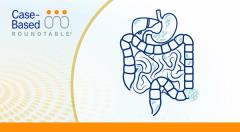
Five-Year Data Confirm Benefit of Nivolumab in Upper GI Cancer
David B. Zhen, MD, discusses the results of the phase 3 CheckMate 649 trial in patients with advanced gastric cancer, gastroesophageal junction cancer, and esophageal adenocarcinoma.
Episodes in this series

David B. Zhen, MD, associate professor in the clinical research division of Fred Hutchinson Cancer Center, discusses the results of the phase 3 CheckMate 649 trial (NCT02872116) in patients with advanced gastric cancer, gastroesophageal junction cancer, and esophageal adenocarcinoma.
According to Zhen, the trial comparing nivolumab (Opdivo) plus chemotherapy vs chemotherapy alone led to an overall survival (OS) benefit in patients with a PD-L1 combined positive score (CPS) of 5 or higher, with a median of 14.4 months in the nivolumab arm vs 11.1 months with chemotherapy alone. In 5-year data
In terms of toxicities, Zhen said that the majority were attributable to the chemotherapy including cytopenias, nausea, and diarrhea, which physicians are experienced in managing. There were few adverse events that were considered immune-related, and they were generally manageable.
TRANSCRIPTION:
0:10 | The trial did meet its primary end point of a survival benefit in patients who had a CPS of 5 or above. Specifically, the overall survival in this group of patients was a median OS of 14.4 months compared [with] 11.1 months with chemotherapy alone, which was impressive, since this was the first study that demonstrated a survival benefit beyond a year. And here, we now have recently 5-year long-term data that was just recently presented at ASCO GI in January 2025, and this further confirmed the results with now a 5-year survival benefit of 16% vs 5% with chemotherapy alone.
0:54 | This is a pretty manageable regimen, since most of the toxicities are actually attributable to the chemotherapy, and so most of the toxicities are usually related to the cytopenias from chemotherapy, as well as the nausea management, diarrhea, and such that we're all aware of with chemotherapy. Very few events were actually related to immune-related events, and even if they occurred, they generally were very mild and very manageable.
















































